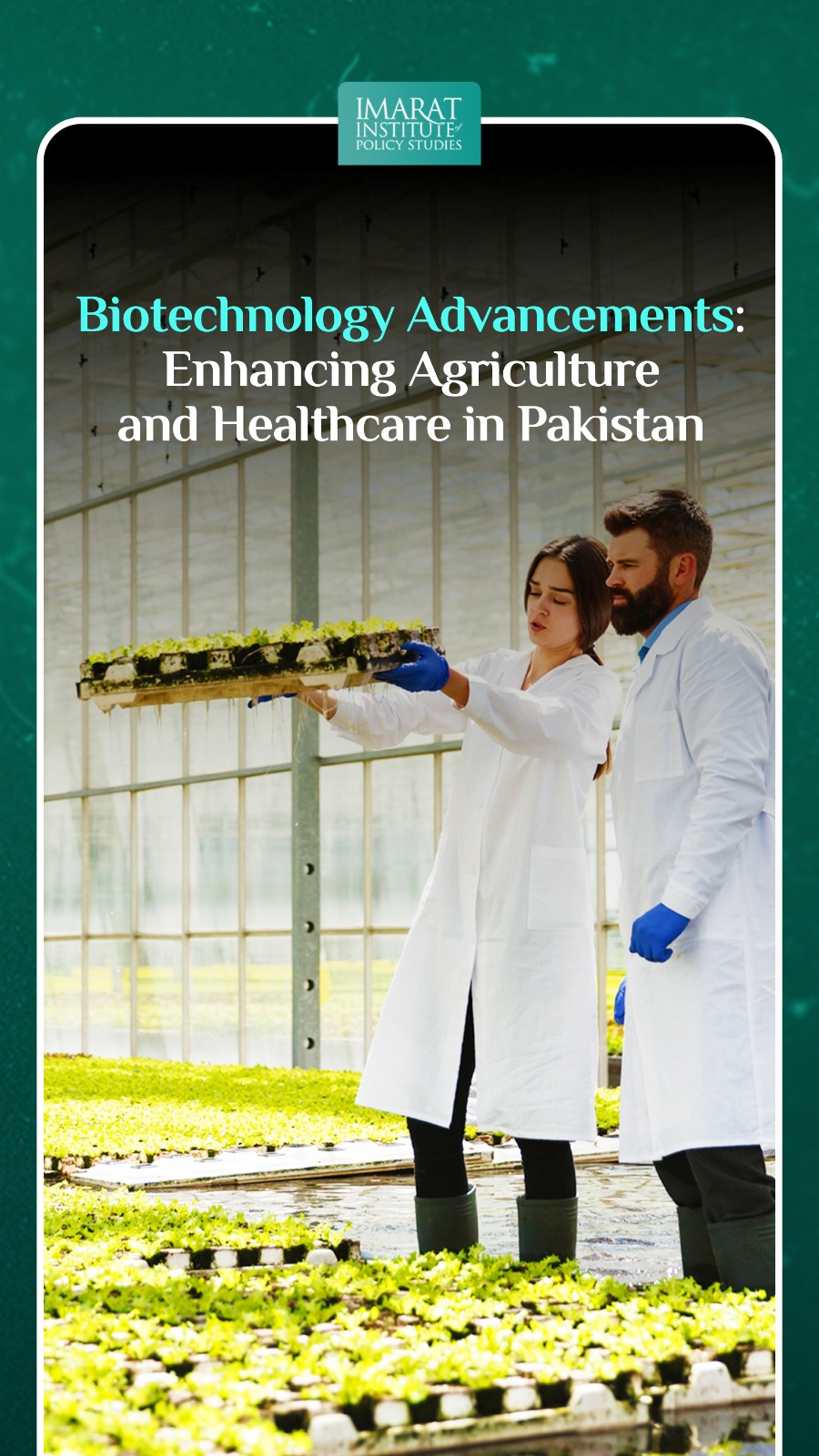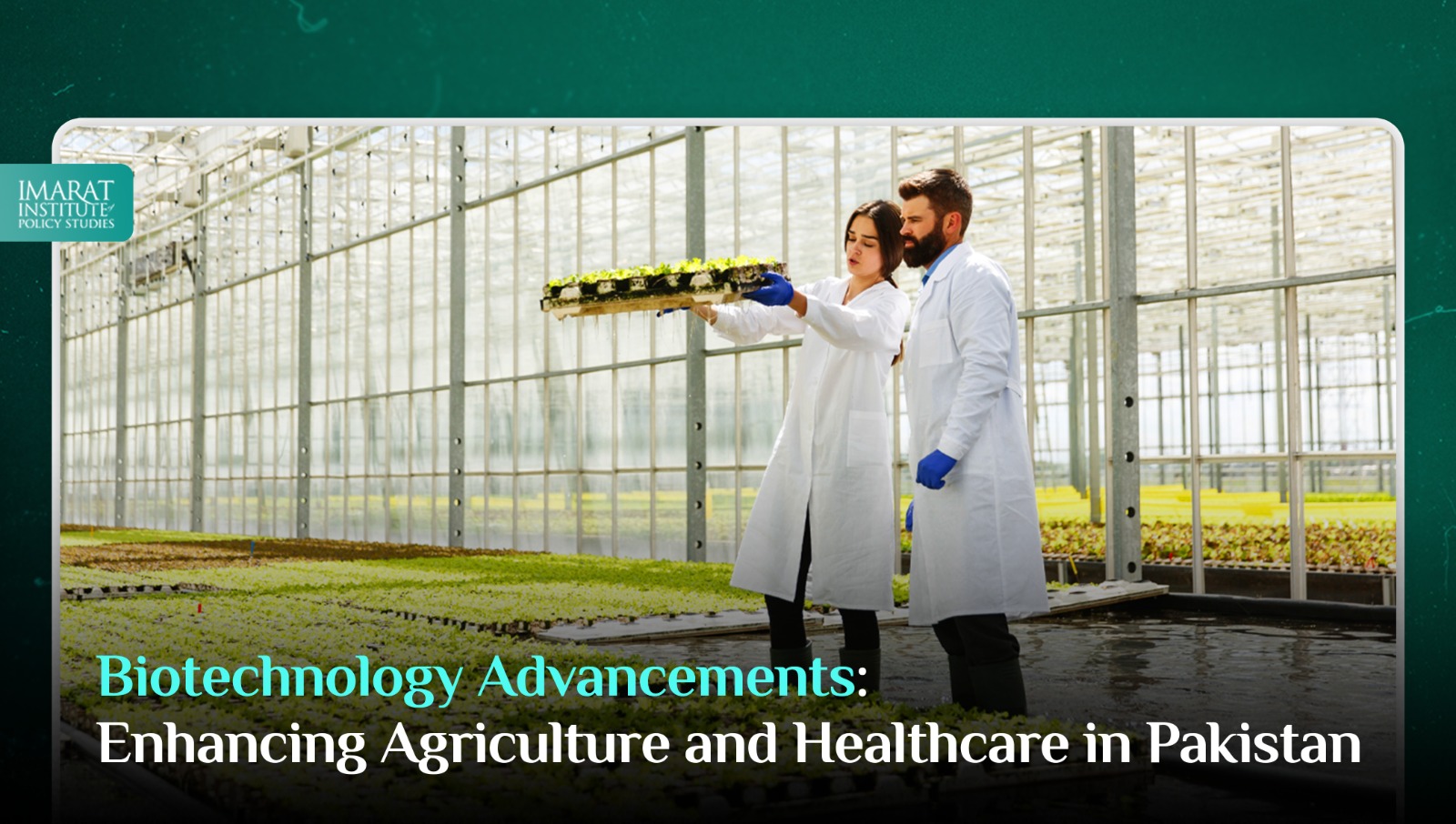Biotechnology has emerged as a transformative force, revolutionizing agriculture and healthcare sectors worldwide. In Pakistan, a country with a predominantly agrarian economy and evolving healthcare infrastructure, biotechnological advancements offer unparalleled opportunities to address critical challenges and drive sustainable development. This comprehensive blog delves into the multifaceted impact of biotechnology on agriculture and healthcare in Pakistan, exploring key advancements, innovative applications, and their far-reaching implications.
Agricultural Advancements
Genetic Engineering and Crop Improvement
Genetic modification (GM) technology has propelled crop improvement efforts in Pakistan, enabling the development of high-yielding, pest-resistant, and climate-resilient crop varieties.
GM cotton varieties, such as Bt cotton, have transformed Pakistan’s cotton industry by reducing pest damage and increasing yields, thereby enhancing farmers’ livelihoods and contributing to the national economy.
Biofortification and Enhanced Nutrition
Biofortified crops fortified with essential micronutrients, such as iron, zinc, and vitamin A, address malnutrition challenges prevalent in Pakistan, particularly among vulnerable populations.
Biofortified wheat varieties, rich in iron and zinc, hold promise for combating micronutrient deficiencies and improving public health outcomes, especially in rural areas.
Climate-Smart Agriculture
Climate change poses significant threats to Pakistan’s agriculture, including water scarcity, soil degradation, and extreme weather events. Biotechnology offers climate-smart solutions through the development of drought-tolerant, salt-tolerant, and heat-resistant crop varieties.
Stress-tolerant crop varieties enhance resilience to climate variability, safeguarding food security and livelihoods in the face of environmental challenges.
Sustainable Farming Practices
Biotechnology promotes sustainable agricultural practices by reducing reliance on chemical inputs and fostering ecosystem resilience.
Pest-resistant GM crops minimize pesticide usage, mitigate environmental pollution, and support integrated pest management (IPM) strategies, promoting ecological balance and biodiversity conservation.
Healthcare Advancements
Molecular Diagnostics and Disease Surveillance
Biotechnological innovations in molecular diagnostics enable rapid and accurate detection of infectious diseases, genetic disorders, and non-communicable diseases (NCDs).
Advanced diagnostic tools, such as polymerase chain reaction (PCR) and next-generation sequencing (NGS), enhance disease surveillance capabilities, enabling timely interventions and public health responses.
Biopharmaceuticals and Therapeutics
Biotechnology-driven pharmaceuticals offer novel therapeutic interventions for a wide range of diseases prevalent in Pakistan, including cancer, diabetes, and cardiovascular disorders.
Biopharmaceuticals, such as monoclonal antibodies and recombinant proteins, provide targeted treatment options with enhanced efficacy and reduced side effects, improving patient outcomes and quality of life.
Precision Medicine and Personalized Healthcare
Precision medicine initiatives leverage genomic data, biomarker analysis, and artificial intelligence (AI) algorithms to tailor treatment regimens to individual patients’ genetic makeup and disease characteristics.
Personalized healthcare approaches optimize drug selection, dosage, and treatment modalities, maximizing therapeutic benefits and minimizing adverse reactions, thereby advancing patient-centered care in Pakistan.
Biomedical Research and Innovation
Biotechnology fosters interdisciplinary research collaborations between academia, industry, and healthcare institutions, driving innovation and knowledge creation in Pakistan.
From stem cell research to gene editing technologies like CRISPR-Cas9, biotechnological advancements fuel groundbreaking discoveries, paving the way for novel therapies, medical breakthroughs, and scientific advancements.
Policy and Regulatory Framework
Effective policy and regulatory frameworks are essential to harness the benefits of biotechnology while ensuring safety, ethics, and environmental sustainability.
Pakistan needs to develop clear guidelines and regulations governing the research, development, and commercialization of biotechnological products, fostering innovation while mitigating potential risks.
Capacity Building and Infrastructure:
Investing in human capital and research infrastructure is critical to building Pakistan’s biotechnology capabilities and competitiveness on the global stage.
Training programs, research grants, and collaborative networks can facilitate knowledge exchange, skill development, and technology transfer, empowering local scientists and entrepreneurs to drive biotechnological innovation.
Public Awareness and Engagement:
Promoting public awareness and understanding of biotechnology is key to fostering societal acceptance and support for biotechnological advancements.
Educational campaigns, outreach initiatives, and stakeholder dialogues can bridge the gap between science and society, facilitating informed decision-making and responsible adoption of biotechnological solutions.
International Collaboration and Partnerships:
Collaboration with international partners, research institutions, and industry stakeholders can accelerate Pakistan’s biotechnological progress and facilitate access to cutting-edge technologies and expertise.
Engaging in collaborative research projects, joint ventures, and technology transfer agreements can enhance Pakistan’s capacity for innovation and competitiveness in the global biotechnology landscape.
Conclusion
Biotechnology stands as a cornerstone of progress and innovation in Pakistan, offering transformative solutions to address pressing challenges in agriculture and healthcare. By harnessing the power of biotechnological advancements, Pakistan can achieve sustainable development goals, enhance food security, improve public health outcomes, and drive economic growth. However, realizing the full potential of biotechnology requires strategic investments, robust regulatory frameworks, and collaborative partnerships across sectors. With concerted efforts and visionary leadership, Pakistan can leverage biotechnology to build a prosperous and resilient future for its people.
This article is written by Radma Nouman. Radma is a research analyst at the Iqbal Institute of Policy Studies (IIPS).



Leave a Reply